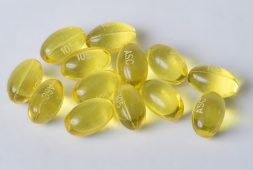
According to a survey conducted by the Council for Responsible Nutrition (CRN) in 2020, over 43 percent of dietary supplement users have changed their supplement routine since the pandemic. Of those that changed up their regimens, 91 percent shared that they either increased their supplement intake by adding new supplement, taking their same supplements regularly, or upping their dosage of supplements. When asked why, the top reason was for the health and wellness benefits.
Although supplements are usually seen as the sure way method to meet your daily nutritional needs, if you’re not careful, they can actually create issues and health problems. According to the May 2022 issue of U.S. Pharmacist, just like regular medicines, they can affect the way your body functions, even creating adverse effects in some people.
So how can you be sure that you are taking the right amount of supplements and not actually overdoing it? In this article, we will share with you the potential health benefits, as well as the risks of common supplements that people tend to take, so read on.
Potential Health Benefits of Supplements
Pharmacist with Trinity Health Mid-Atlantic in Philadelphia, Rohit Moghe, PharmD, CDCES, who also happens to be a member of the American College of Lifestyle Medicine (ACLM) shares, “[In general], a supplement is something you’re not getting enough of through food.”
This is how people tend to fill in their nutrient gaps, which is to take capsules, powders, gummies, tinctures, and even saline solutions which tend to be given through a needle, known as IV therapy.
In the Dietary Supplement Health and Education Act of 1994, Congress outlined supplements as ‘products (other than tobacco) that are intended to supplement the diet, contains one or more dietary ingredients (including vitamins, minerals, herbs, botanicals, amino acids, or other substances) or their constituents, is intended to be taken by mouth as a pill, capsule, tablet, or liquid, and is labeled as a dietary supplement.’
Although a number of people manage to meet their nutrient requirements through their everyday diet, there are some that highly benefit from supplements. An article published in the January 2018 journal, Nutrients, shares that some people that face a higher risk of nutrient deficiencies, such as those with higher requirements such as children, adolescents, and pregnant or lactating women, as well as those who have a difficult time absorbing nutrients, such as obese or older adults, as well as those with chronic health conditions. Meanwhile, those with restrictive diets, like vegetarians or vegans, may also benefit from supplement taking.
One example is the vitamin B12 supplement, which is good for older adults and those who follow a vegetarian or vegan diet. The National Institute of Health (NIH) shares that this vitamin helps keep the blood and nerve cells health, while also playing a key role in making DNA. Vitamin B12 is naturally found in animals foods, meaning vegetarians and vegans may find it difficult to get enough of it into their system because of the diet they follow. Older adults may also find it difficult to get enough Vitamin B12 since they don’t have enough hydrochloric acid in their stomachs to absorb it, explains the NIH, which is why these two groups may benefit from a vitamin B12 supplement the most.
Possible Risks of Supplements
One very common worry about supplements is that in general, the industry is under-regulated. What this means is that they don’t necessarily have to be approved by the U.S. Food and Drug Administration (FDA), unlike medications, even before they are marketed and sold in stores.
A democrat from Illinois, Senate Majority Whip Dick Durbin, and Republican from Indiana, Sen. Mike Braun, have proposed new legislation – considered a bipartisan initiative – that aims to improve the safety of dietary supplements through requiring manufacturers to list their products with the FDA under the Dietary Supplement Listing Act 2022. This new legislation, which is referred to as the Dietary Supplement Health and Education Act of 1994, shows that there were around 4,000 dietary supplements that were marketed in the United States in 1994, while currently, there are already 50,000 to 80,000 products available throughout the country.
However, consumers cannot be sure that they supplements they are buying and taking are actually safe and effective since they lack approval.
Despite supplements being considered generally safe for consumption, it doesn’t necessarily mean that they are safe for every single person. Medical director of critical care services for the Ross Heart Hospital at The Ohio State University Wexner Medical Center in Colombus, Ravi Tripathi, MD, says, “Most vitamins and minerals have a risk of harm with dosages, and the risk is based on the individual nutrient and patient.”
He adds that “there is no one size that fits all” when it comes to taking supplements and the risks they could possibly entail.
One example of this is people that have an inherited condition known as hemochromatosis. They need to be particularly careful of taking iron supplements since this condition causes toxic levels of iron to build up within the body, shares the NIH.
Moreover, the NIH also shares that while most people don’t get enough potassium in their diets, even through their diet and taking supplements at the same time, those with chronic kidney disease can develop abnormally high levels of potassium in their blood, which is a condition known as hyperkalemia. According to the National Kidney Foundation, this health issue can create serious heart problems when left untreated.
The NIH also points out that supplements can still create risks in people that are considered healthy when taken in high doses or for those that take too many varieties.
Many times, the symptoms that occur from taking too many supplements also varies, depending on which nutrient and how much you are taking, sometimes only showing up when blood tests are administered. Yet, there are also some physical signs that you can watch out for, for over supplementation. According to an article from May 2022 in the U.S. Pharmacist, here are some of the symptoms you can watch out for – headache, dizziness, nausea, severe weakness, constipation or diarrhea, tremor, the inability to perform routine tasks or to exercise.
Here are 5 Common Supplements People Usually Overdo
- Vitamin C
Vitamin C, also called ascorbic acid, is good for you since it acts as an antioxidant and works to protect your body from damage from free radicals. Moreover, the NIH says that your body needs vitamin C to produce collagen, which is protein used in wound healing. But you may also be taking too much vitamin C, since many people don’t realize that they are already getting some through the food they eat on a regular basis. Taking too much vitamin C can result in nausea, stomach cramps, and diarrhea. Plus it can even negatively affect with cancer treatments, such as radiation therapy and chemotherapy. One study even shared how men that took too much vitamin C had a higher risk of developing kidney stones.
- Calcium
Another vitamin that some people take too much of is calcium. According to the NIH, calcium helps build and maintain strong bones, while also playing a key role in circulation, hormone release and nerve function. But Cleveland Clinic also claims that you may be overdoing, especially when you are already getting enough calcium from your food. Too much can lead to constipation, kidney stones, kidney failure, cognitive issues, and even heart problems.
- Vitamin D
Vitamin D, which is also called the “sunshine vitamin,” aids in calcium absorption, which is a key nutrient for bone health. Vitamin D also helps carry messages between the brain and the body, helping fight off bacteria and viruses, explains the NIH. According to findings published in the June 2019 journal Cureus, blood tests showed that 40 percent of Americans are considered vitamin D deficient, which means that their serum levels showed that they have less than 50 nmol/L. Although taking a supplement may help, it’s also important to not take more than 100 micrograms (mcg) a day, and most people get vitamin D through sunlight exposure and consuming vitamin D-rich foods. As per the NIH, overdosing on vitamin D can cause nausea, vomiting, muscle weakness, loss of appetite, dehydration, pain, and kidney stones.
- Vitamin A
The NIH explains that vitamin A is important for immune health, vison, reproduction, growth and development. And most people get a good dose of vitamin A from carrots, sweet potatoes, cereals and other foods. So when people supplement with even more vitamin A, they could be getting more than they necessarily need. Some of the adverse side effects of too much vitamin A are blurred vision, dizziness, nausea, severe headaches, muscle aches, and even coordination issues.
- Iron
Iron is good for you since your body needs it produce hemoglobin, which is the protein in red blood cells that carry the oxygen all throughout the body. Moreover, it also helps your body produce hormones. Many times, younger females are made to take iron supplements as an offset for when they have menstruation. But, the Cleveland Clinic shares that many women continue to take iron even after they menopause, despite iron needs reducing. Too much iron in the system can cause gastrointestinal issues such as abdominal pain, constipation, diarrhea, nausea, and vomiting. In addition, taking too much iron can also lead to inflammation of the stomach lining, as well as ulcers. In very rare cases, too much iron may even cause organ failure, convulsions, coma, and death.
Talking to Your Doctor About Supplements
Although experts share that people should always speak with their doctor before trying out a supplement, not all physicians are knowledgeable about this particular field. Dr. Moghe explains, “I find many [healthcare professionals] are grossly unprepared to answer their patients’ questions, and they wind up telling them that supplements are a waste of money, when maybe there’s a product that may actually work for your intended use.”
Instead, Dr. Moghe suggests that people speak with certain experts in this field such as a physician that happens to be trained in integrative medicine or nutritional medicine, a pharmacist, registered dietitian, or a naturopath. This way, they can lead you towards the proper blood tests to take in order to truly determine what specific vitamin deficiencies you may have, then lead you to which supplements are necessary for you, the right dosage, and how they can positively benefit your diet, lifestyle and overall health.



